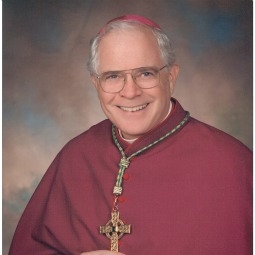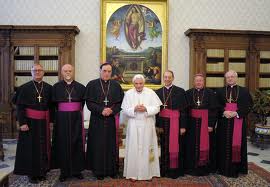 Last week, the National Catholic Register published an interview with Bishop Edward Slattery, who has served as Bishop of Tulsa since 1994.
Last week, the National Catholic Register published an interview with Bishop Edward Slattery, who has served as Bishop of Tulsa since 1994.
While the entire interview is worth reading, I thought our readers would be particularly interested in his comments on the decline of religious communities in recent decades and what must happen to turn things around:
You’ve expressed your concern about the decline of religious communities in the past 40 years. What do you think caused it?
Sometimes Vatican II is blamed for it, but I think it has to do with a change in our culture and the West. We have become secular, self-reliant and independent.
In the 1960s, we had the war in Vietnam, the civil-rights movement, and a society that was increasingly disillusioned with people in authority. Protests arose emphasizing that people were being denied their rights–and, sometimes, they were–and the themes of responsibility, obedience, loyalty, and fidelity were forgotten. We lost an important balance we needed.
Also, as technology improves, people become more and more comfortable and expect to be comfortable. We take for granted the gifts God has given us and think we’re entitled to them.
These prevailing attitudes then affect all of us, whether we’re a religious, bishop, priest, married, or single person. It’s just a matter of time before some religious say, “I’m going to change the way I’m living and re-interpret the meaning of poverty, chastity, and obedience.”
But for us to have a conversion of heart, we need examples. We need religious. We need reformation of the religious and consecrated life because the Catholic Church is searching for men and women who can lead us by example. That is what has been lacking in the past 40 years, as many religious left the religious life or changed to a lifestyle which is, unfortunately, even more comfortable than the average person. Sometimes I think some religious have lost their identity.
The charisms of poverty, chastity and obedience are something that all of us need to embrace, but the religious are the ones who lead us in this. They help us to stay focused on Christ in another world, another kingdom, and not the kingdom of this world.
How should we respond?
We should start with prayer. That’s where everything starts. We don’t start by talking about ourselves or even examining our consciences. We start by prayer, on our knees. We come to the Lord and ask him to let us see ourselves as he sees us. He’s the only one who can. God knows each one of us perfectly, and if we’re seeking self-knowledge, we must go to him.
Once we do that, we receive his help and a certain joy because we open our hearts to being honest. We allow ourselves to see and accept what is true about ourselves and about others in light of the Gospel. But without prayer, that can’t happen.
Once we become men and women of prayer, everything else will fall into place. But we have to put in the time. You have to schedule prayer. You have to make sure that you pray every day, and as often as you can. Become a man or woman of prayer. When we do this, we will begin to discover ourselves, perhaps for the first time.
Like this:
Like Loading...
 Religious freedom, the “new evangelization,” and the push for vocations emerged as key issues during the first round of U.S. bishops’ “ad limina” visits to the Vatican.
Religious freedom, the “new evangelization,” and the push for vocations emerged as key issues during the first round of U.S. bishops’ “ad limina” visits to the Vatican.